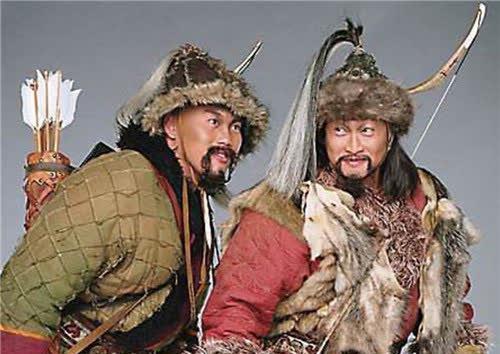In the history of China, there was a nomadic people in the north, who were of the same origin as the Huaxia ethnic group, but repeatedly violated our borders. This nation is what we know as the Huns. According to the "Chronicle of the Xiongnu", the Miao descendants of the Xiongnu ancestor Xia Hou were also known as Chunwei. In the 16th century, the Xia Dynasty fell, and the descendants who fled to the north continued to integrate with other local peoples to form the later Xiongnu tribe.

At first the Huns were stationed in the Gobi Desert or the vast steppes farther away from us, and for many years the peoples of the two ethnic groups were at peace. However, due to the harsh climate in the north, they often had no place to live, coupled with the lack of fruit and vegetable food, the Xiongnu people could only feed on beef, mutton and dairy products. By the 3rd century, after the prosperity of their tribal state, the nation began to be restless.
The Central Plains has a mild climate and fertile land, so the people's lives are stable and the economy is prosperous, which the Xiongnu have always dreamed of. As a result, they have been harassing the northern frontier in order to plunder these resources. In the sixth year of Emperor Yuanguang of the Han Dynasty (129 BC), the Han Dynasty sent an army for the first time to attack the Xiongnu.
The general who led the army on this expedition was given the title of Cheqi General, and he was the famous western Han general Wei Qing, who directly attacked the Xiongnu Dragon City in this battle, and the cavalry he led won a great victory. In the following ten years, Wei Qing fought for the country many times and was respected by Emperor Wu of Han. Sima Qian commented on him in the "Records of History": "Zhiqu Sai, GuangheNan, Broken Qilian, Tongxiguo, Jingbei Hu. ”
Another famous anti-Hungarian general, Huo Fuyi, was the nephew of Wei Qing, who was born in the first year of Jianyuan (140 BC), and at the age of 17, he went deep into the enemy camp to fight and died young at the age of 24, which was not unrelated to the hardships and fatigue of his perennial expedition environment. He once built four cities in the conquest, each of which was given four names, and in 2000 it was not renamed and has been used today, and these cities are in Gansu.
The first was Jiuquan, and in 121 BC, Huo was appointed as a hussar general to lead an army to attack the Hexi area and annihilate more than 40,000 Xiongnu. After the victory of the war, he led the soldiers to drink and celebrate in the city, because the wine given by the emperor was not enough for tens of thousands of people to drink, Huo went ill and poured the wine into the spring water for all the soldiers to drink, so the city got the name of "wine spring".
The second is Wuwei, which was attacked with Jiuquan, which was previously called Liangzhou. The name "Wuwei" is to highlight the martial arts military prestige of the Han Dynasty, although the name is straightforward and has no deep meaning, but it sounds very straightforward and domineering, which makes many northern minority names feel frightened.
The third is Zhangye, which derives its name from its unique geographical location, "Zhangguo Arm Tuo, to pass through the Western Regions", which shows that Zhangye is a transportation hub between the Central Plains and the Western Regions. Historically, after it was attacked by Huo Tou, it quickly developed into a bustling center in the northwest. Zhangye was highly praised in the Travels of Marco Polo, and the city is not only rich, but also has many magnificent temples.
The last one is Dunhuang, when we hear this name, we can't help but think of Mogao Grottoes, and the reason why there will be the construction of The Mogao Grottoes in later generations is also due to the recovery of the city by Huo Quyi. The Chronicle of Dawan lie reads: "Dun, Daye, Huang, Shengye." It can be seen that he had high hopes for this place when he named it, and later Dunhuang did become a cultural shrine, and a large number of scholars are still stationed in this desert to guard it.
After reading the four cities named by Huo Fu Disease, are they all familiar with them, and they have not changed their names since then. From this, we can also glimpse the cultural literacy of this person, who is by no means a well-developed and illiterate person with developed limbs. In fact, he had his own military strategy and ideas in his early years, and he also wrote poems such as "Qin Ge", which was really a talent of both literature and martial arts. In the sixth year of the Yuan Dynasty (117 BC), After Huo's death, Emperor Wu of Han was greatly saddened and built a tomb resembling Qilian Mountain to commemorate his immortal exploits.